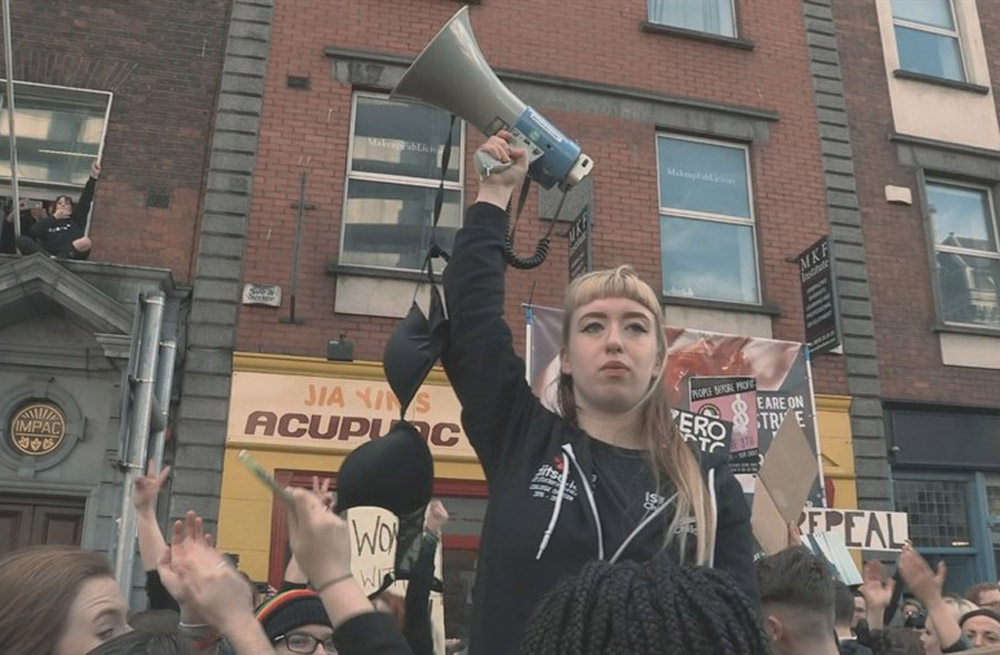At a certain point in “The 8th,” John McGuirk, the communications director for “Save the 8th,” the pro-life campaign that springs up to combat the rising rebellion against the referendum to overturn Ireland’s 8th Amendment, offers up what he’d do if he were campaigning for the other side. Without swagger, but certainly a confidence about what he sees as “wishy-washy” messaging from the rival “Together for Yes” campaign, he describes focusing on the most extreme necessities for abortion such as fatal fetal abnormalities or cases of rape as the strongest way to reach voters, surely a strategy that has served his cause well in the past, but looks increasingly creaky in Aideen Kane, Lucy Kennedy and Maeve O’Boyle’s galvanizing chronicle of the 2018 vote that gave Irish women the right to choose.
As well-organized as the “Yes” campaign, “The 8th” also shares with its subjects a resistance to appealing to people’s most base instincts to make its points, illustrating how a savvy campaign reframed the debate around abortion to being about women’s rights in general and cast aside fear mongering in favor of fun, accessible community building, particularly amongst the youngest generation of voters. You know that both the political doc and the campaign it covers are going to be a bit different as soon as it introduces Ailbhe Smyth, the co-director of “Together For Yes” who shows off a lifetime achievement award she claims to have received “for just being a good gay.” Not taking herself too seriously, the film does, charting Smyth’s fight from the present day back to the initial implementation of the law that essentially prohibited abortion in the country in 1983 by claiming that a fetus had the same rights as its mother from the point of conception.
Smyth is naturally a central character, but the filmmakers are careful not to give her much more attention than any of the other women who appear on screen, emphasizing a movement that captured the imagination of a wide swath of the public. Still, some can’t help but stand out such as Andrea Horan, a recently radicalized nail salon owner to bring the “glitz and glam,” masterminding murals and podcasts (“Don’t Stop Repealin’”) that could speak to women like her who hadn’t thought that they had any place in politics, and while any of the film’s swooning orchestral cues could tell you it’s firmly on the side of the “Together for Yes” campaign, some of its most compelling moments are made in speaking with supporters of “Save the 8th,” such as Wendy Grace, a deejay who speaks eloquently about how the recent wave of women in the workplace in Ireland hasn’t been accompanied by real discussion around accommodating pregnancy.
Kane, Kennedy and O’Boyle make the most of the energetic moment they capture by largely staying in the present, but “The 8th” is nimbly structured to present inflection points where the collective attitude towards a woman’s right to choose began to change in the primarily Catholic country, from the 1992 Supreme Court case Attorney General v. X where a 4-1 majority believed a 14-year-old who had been raped would’ve killed herself had she not received an abortion to the 2012 death of Savita Halappanavar, who was denied an abortion despite the eventually lethal risk of continuing with a pregnancy that had already resulted in a miscarriage. Facing the same challenge that campaign organizers did in putting prior history into context and showing people the power of their individual vote, “The 8th” not only documents a political triumph, but becomes one in its own right.
“The 8th” will premiere virtually at Hot Docs, where it will be made available to Ontario audiences from May 28th through June 6th. It will next screen virtually at the Human Rights Watch Film Festival beginning June 9th.




